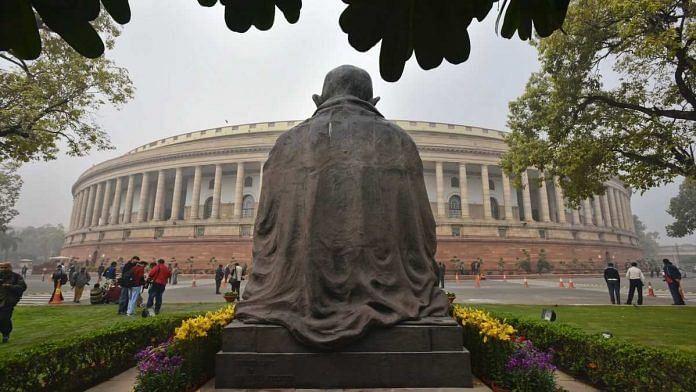From deeming begging a crime to a law that prevents government staff from protesting, archaic and redundant laws continue to remain on the statute.
New Delhi: In his much-publicised poll campaign prior to the 2014 general elections, Prime Minister Narendra Modi had vowed to repeal “10 redundant laws for every new law that is passed”, adding that in his first 100 days in office, he would repeal 100 archaic laws.
Four years into his tenure, however, several archaic and redundant laws continue to plague our statute books, including some that consider begging a crime, legislation that prevents government employees from protesting and one not allowing “encroachers” any legal recourse.
The Centre for Civil Society, as part of its project titled Repeal 100 laws, in association with NIPFP and the Vidhi Legal Centre, has shed light on such laws. Here are some of the important ones:
Jammu and Kashmir Prevention of Beggary Act, 1960 and the Assam Prevention of Begging Act, 1964.
Under these legislations, the respective state authorities can detain anybody engaging in begging.
Section 4 of the J&K Prevention of Beggary Act gives the police the powers to arrest an offender without a warrant, with the punishment being a sentence of anywhere between 1 to 7 years in a shelter home.
The Assam Prevention of Begging Act, 1964, has been adapted from the Bombay Prevention of Begging Act, 1959, and works on similar lines as the J&K legislation.
Incidentally, in Harsh Mander vs Union of India, the Bombay High Court had struck down 25 sections of the Bombay legislation, stating that “if we want to eradicate begging, artificial means to make beggars invisible will not work”.
The Central government has brought a draft bill titled, Persons in Destitution Model Bill, 2016, to be implemented by all states, and aims to do away with all such laws.
The Mizoram Maintenance of Essential Services Act, 1990 (MESMA)
The legislation allows the state to issue orders prohibiting strikes in any “essential service”. The decision, of which service can be deemed “essential”, lies in the hands of the state government.
The participants of a strike deemed illegal by the state can then be prescribed a punishment of one year with a fine of Rs 2,000. The offence is non-bailable and can also lead to dismissal from a job.
The legislation allows the government the leeway to suppress the dissent of employees protesting for legitimate demands. It was used to clamp down on nurses demanding improved working conditions in 2008.
Also read: Only 14 pvt member bills out of thousands became laws since 1952, 2% discussed in 20 years
Gujarat Local Authorities (temporary postponement of elections and extension of term) Act, 1993
The Act allows for temporary postponement of elections and extension of office terms of local authority members and councillors. This was meant to give the government time to constitute corporations, municipalities and panchayats in the said period.
The legislation was formulated when it was the need of the hour and has long achieved its purpose. The Ministry of Law and Justice has repealed many such acts in the past.
Mizoram Prevention of Government Land Encroachment Act, 2001
The law prohibits encroachment on government land and allows a state-appointed revenue officer the right to calculate the penalty, pass the eviction order, and forfeit the property — among other powers.
This law, however, prohibits the offender from approaching civil courts, only allowing an appeal with the same district revenue officer within 30 days.
The law, by giving unreasonable powers to the revenue officer and also prohibiting any substantial legal recourse for the offender, violates fundamental rights.
Assam Moslem Marriage and Divorces Registration Act, 1935
The legislation permits the local government to grant licenses to members of the Muslim community, allowing them to function as registrars for Muslim marriages and divorces. The appointed member is expected to make entries into registration books within a month of a divorce or the marriage of a couple.
The Law Commission of India, however, has recommended the repealing of all pre-existing state laws relating to marriage registration, including this particular act, and enactment of a centralised marriage and divorce registration act applicable to all citizens regardless of religion.
Tripura Medicare Service Persons and Medicare Institutions Act, 2013
After repeated acts of violence against doctors in hospitals, this particular law was enacted to prohibit violence against medical-care professionals. Offenders can face imprisonment of three years and a fine extending up to Rs 50,000.
But the Indian Penal Code, under Section 323 already provides punishment of 1-year imprisonment and a fine of Rs 1,000 for causing hurt and imprisonment of seven years for causing grievous hurt under Section 325 of the IPS. The Medicare Act thus becomes redundant.
Also read: Parliament panels ignored: Under Modi rule, 7 out of 72 bills went to standing committees



